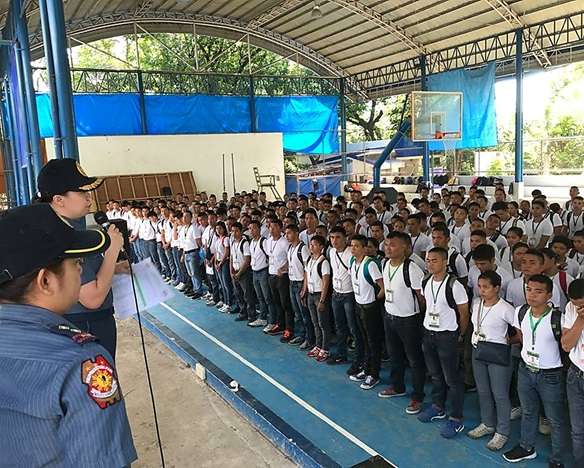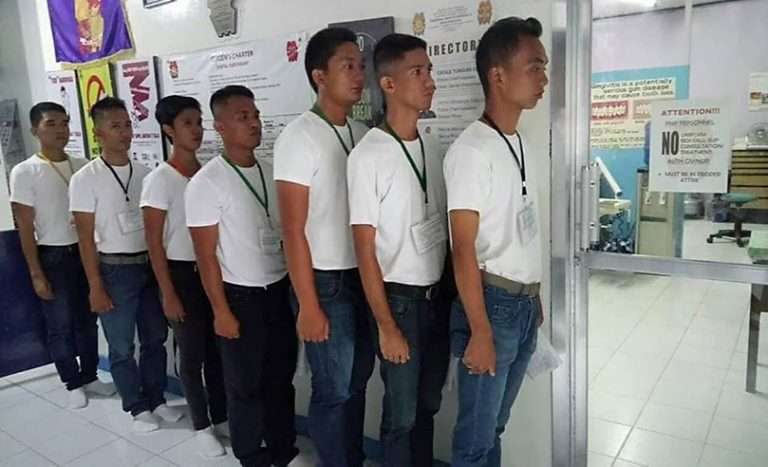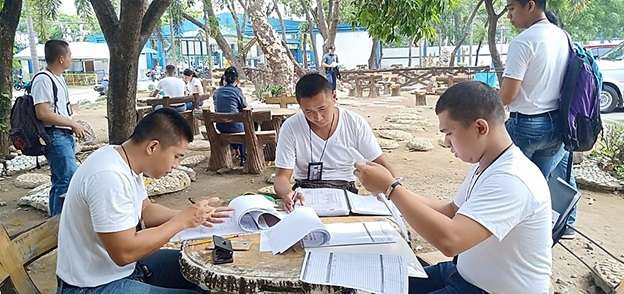The PNP Applicant’s Journey (PART 2)
The PNP Applicant’s Journey (PART 2)
On the first part of this article, we briefly discussed the history of the Philippine National Police (PNP) and the requirements and the additional eligibilities for applying as a non-commissioned police officer. On the continuation of the article, we will talk about the procedure for applying as a non-commissioned officer of the PNP and then we will move on to how one can become a commissioned officer through the Philippine National Police Academy (PNPA).
The
Application Process
All
the required documents which shall be submitted shall be authenticated by the
relevant authorities. Applicants who are from cultural minorities can also get
waivers for the height and weight requirements under RA 6975 as it was amended
by RA 8551.
If you are interested in becoming a non-commissioned officer of the PNP and you meet all the requirements that were listed on the first part of this article, then you can download the Recruitment Application Form. You can download the form directly from the PNP website.

Once
you have completed the form, you can submit it to the PNP Recruitment and
Selection Section, Office of the Regional Personnel and Human Resource
Development Division. You will have to include a 2X2 ID picture with the form.
The PNP Recruitment and Selection Section will conduct the initial screening of
the applicants.

The
candidates who pass the initial screening will go through the following stages
of the recruitment process:
1.
Physical Agility Test
2.
Psychiatric/Psychological Examination (PPE)
3.
Physical, Medical, Dental Examination (PMDE)
4. Dug Test
5. Final Deliberation
The
applicants who pass these stages will then take the oath of the newly recruited
police officers. The new recruits will then undergo the trainings which have
been mentioned on the first part of the article.
The
Philippine National Police Academy
The
Philippine National Police Academy (PNPA) is the Philippine public safety
school under the Department of Interior and Local Government (DILG). It trains
and educates commissioned officers for the three services under the DILG,
namely the PNP, Bureau of Jail Management and Penology (BJMP) and the Bureau of
Fire Protection (BFP).
If
you are interested in becoming a commissioned police officer of the PNP, then
the Academy is a great way of joining the organization. Cadets will get a
4-year scholarship and will receive an allowance during their stay in the
academy. On top of that, cadets will also full accommodations and will be
provided with the uniforms that they need during their training.
Cadets
of the PNPA who join the PNP are conferred BS Public Safety Major in National
Police when they graduate and attain the rank of Lieutenant in the PNP.
The
following are initial qualifications for applicants to the PNPA:
• Natural
born Filipino citizen
• 18
to 22 years old on the date of appointment
• Single
• No
parental obligation
• At
least Senior High School graduate on the date of admission;
• Height
requirements: least 162.5cm. for male and 157.5 cm. for female
• Weight
corresponding to the applicant’s height, gender, and age in reference to BMI
• Physically
and mentally fit
• With
good moral character
• Applicants
must not have criminal, administrative and civil derogatory record
• Applicants
must not have pending complaint and/or case before any tribunal
• Must not be a former cadet of PNPA, or other service academies
• Must not have been dismissed from any private employment or government position
Applicants
can download the application form from the PNPA
website. Once completed, the form, together with a copy of the applicant’s
birth certificate from the PSA, should be submitted to the Office of the
Registrar of the PNPA. It can be hand carried to the office or it can be sent
through express mail using the following address:
The Director (Attn:
Registrar)
Philippine National Police
Academy
Camp General Mariano N. Castañeda
Silang, Cavite 4118
The
application should be sent during the announced period of application. Those
who are qualified will be informed that they can take the Cadet Admission Test.
The test will cover the following:
• Communication
Skills
• Logical
and Reasoning Ability
• Math and Sciences
• General Information and Current Events
READ: BE A PNPA CADET 2023

Those
who pass the admission test will undergo the next phase of screening which is
comprised of:
1. Physical
Agility Test
2. Psychological
and Psychiatric Examination
3. Physical, Medical and Dental Examination
4. Panel Interview
On
the third part of the article we will discuss the Lateral Entry Program for the
PNP. This is the program for the recruitment of Technical Officers. We will
also give some tips on what to do in case an applicant is unable to pass the
exams or the screening of applicants.